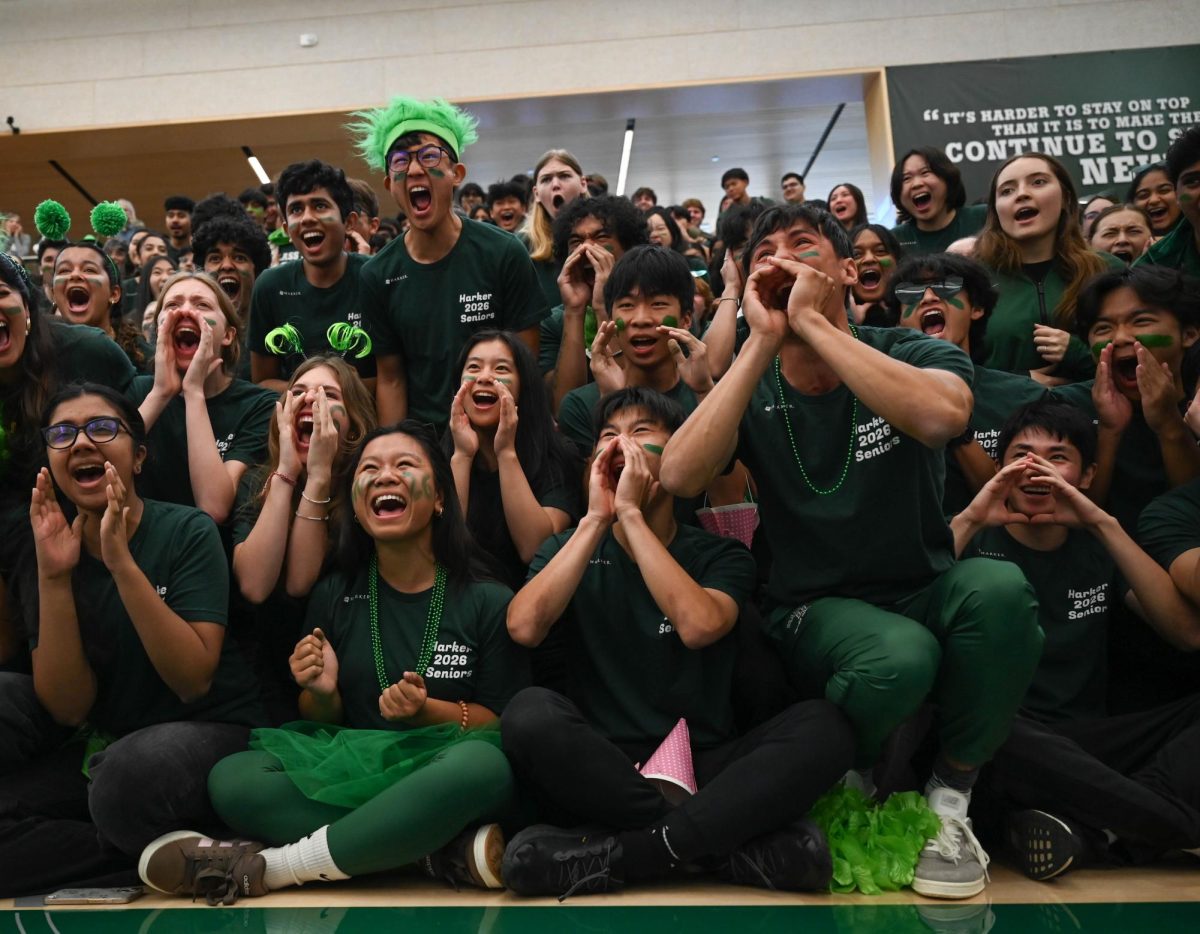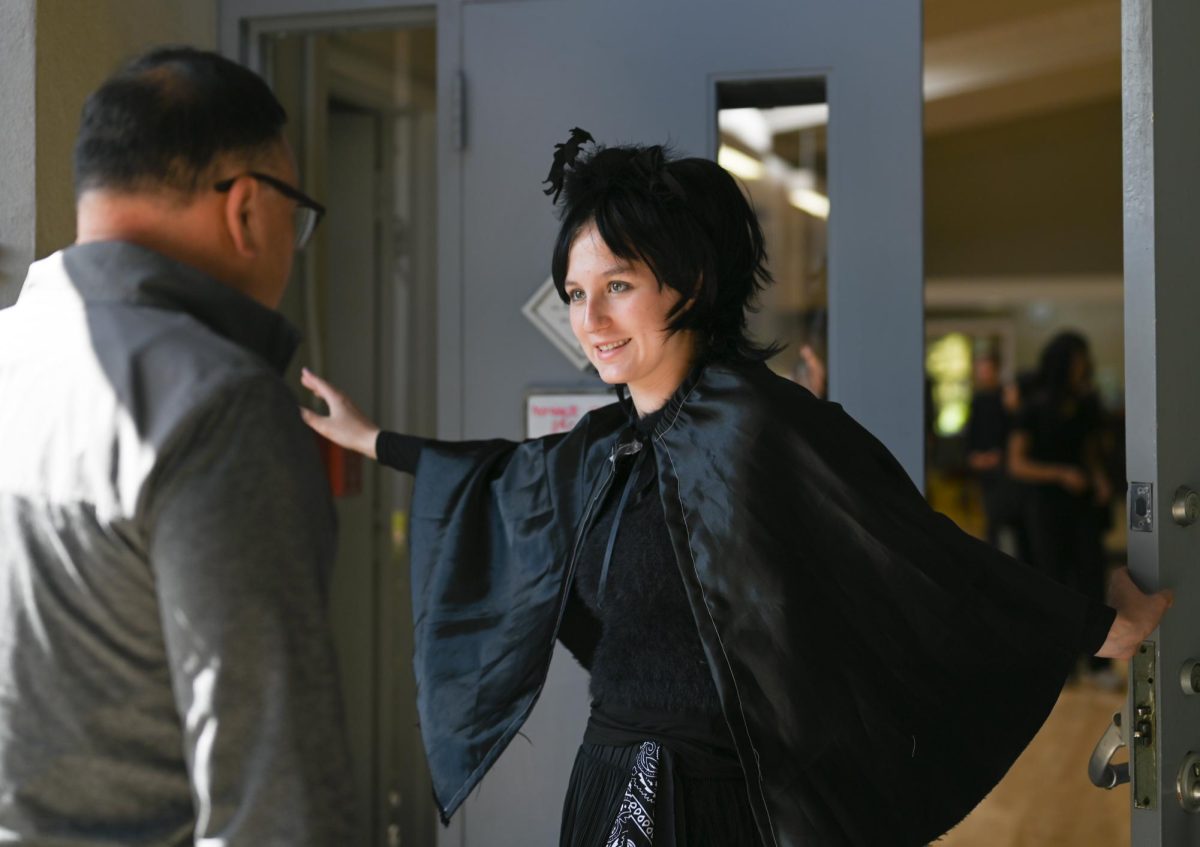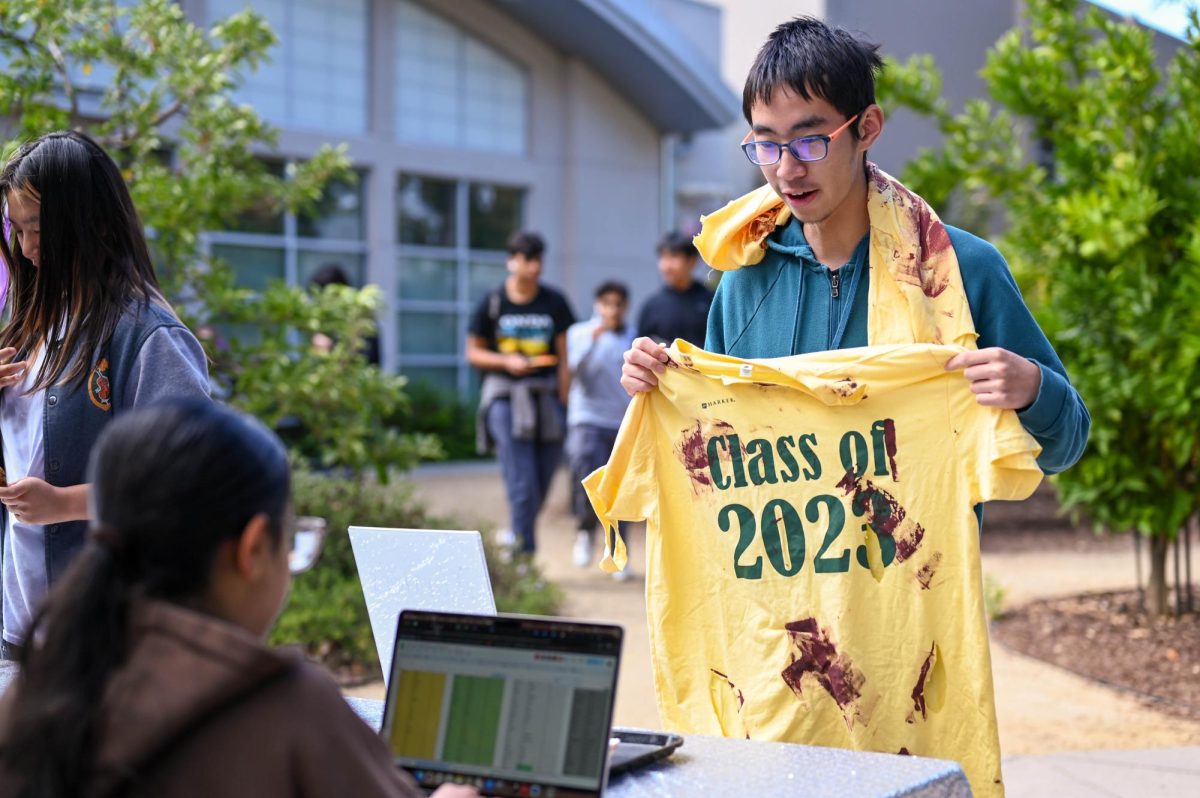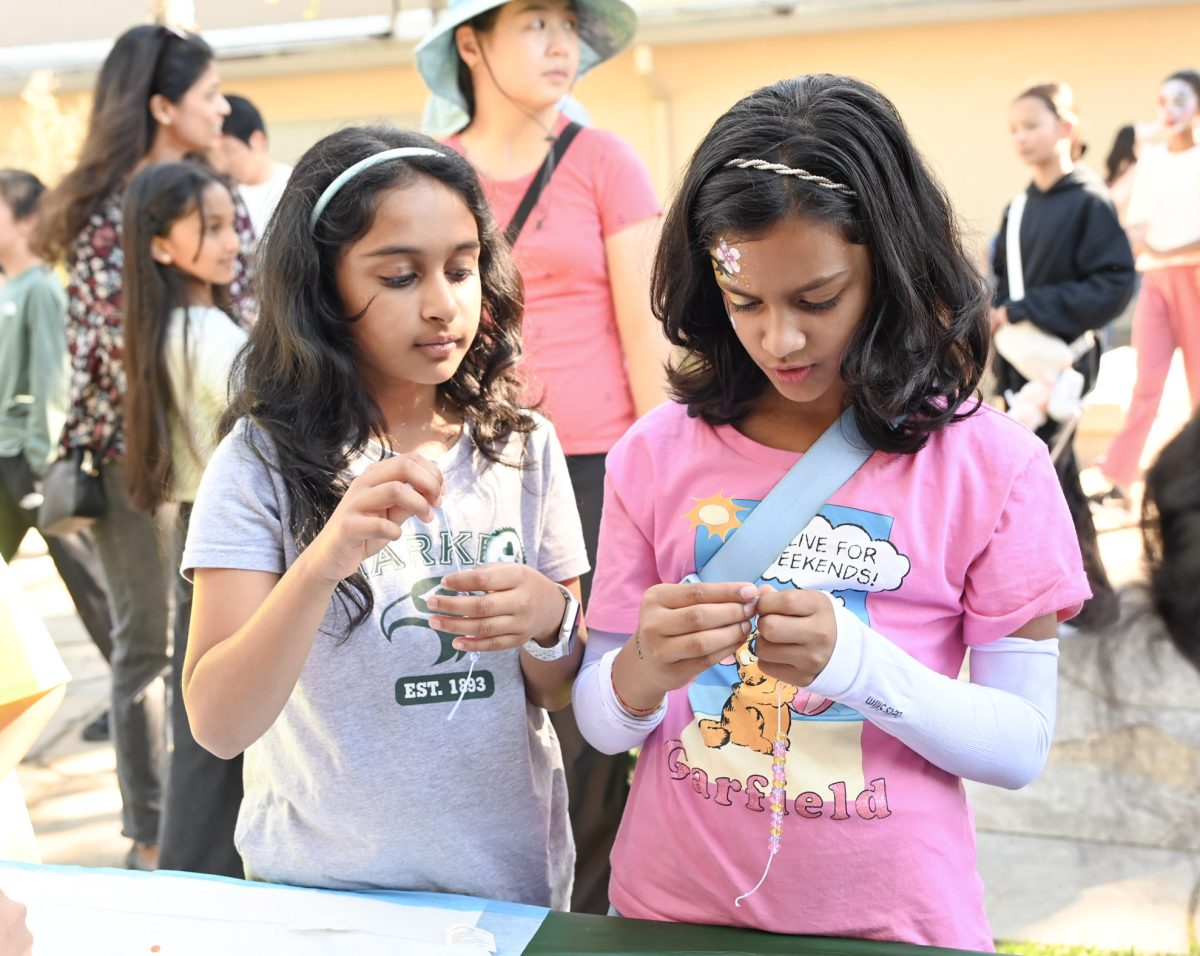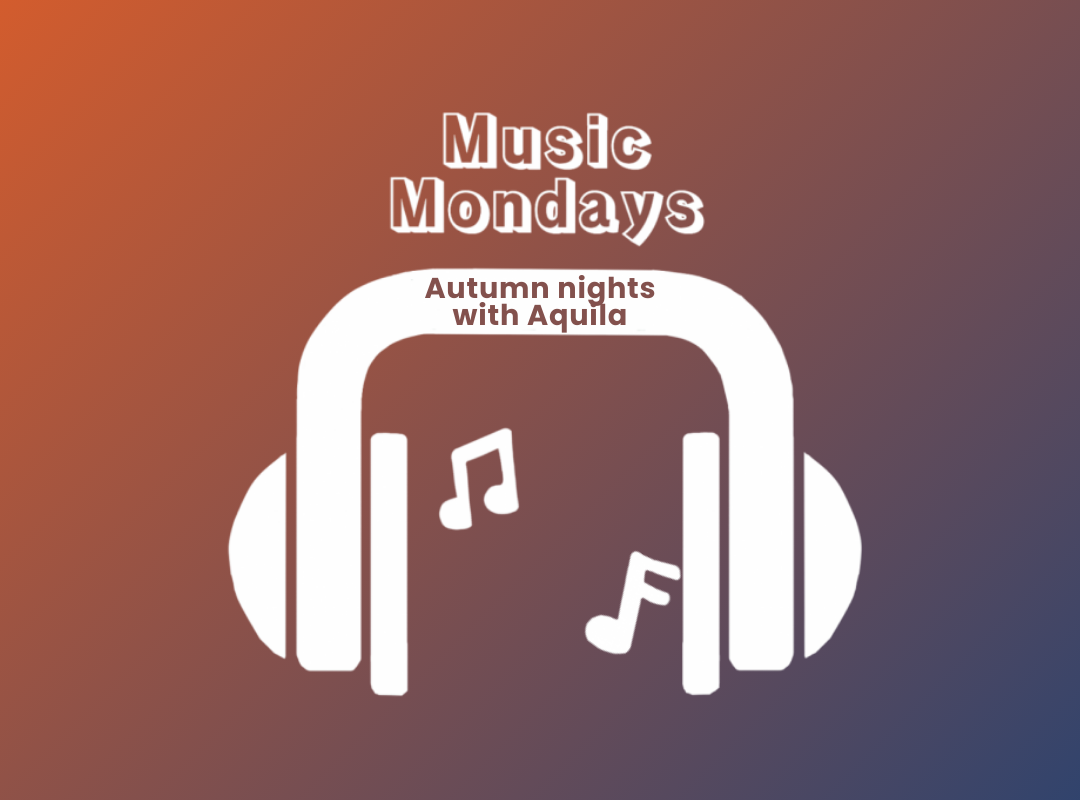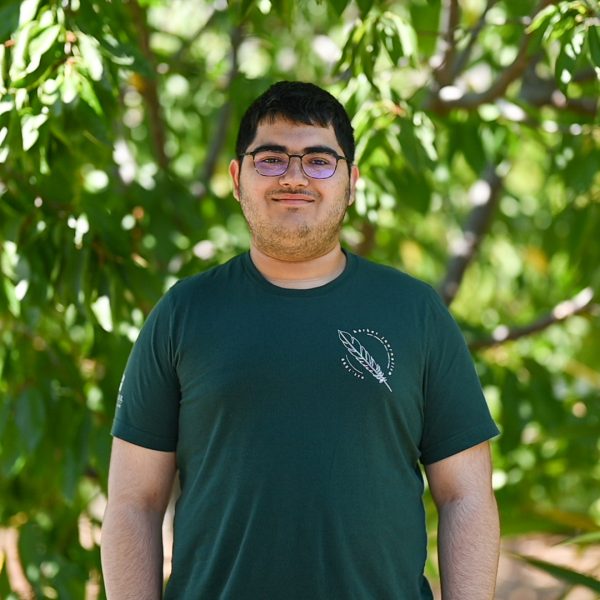Language and Linguistics Club held a meeting on Feb. 27 discussing sociolinguistics and how it connects to modern day life after school from 3:15 to 3:45 p.m. in upper school French teacher Galina Tchourilova’s room.
Co-president Ritu Belani (12) led the presentation and opened with a warm-up in which the audience considered the prompt,“How many dialects of English can you name?” The audience responded with examples of English vernaculars, which highlighted one of the goals of the presentation to help students recognize that many forms of a language exist.
Ritu then transitioned into the concept of prescriptivism, which focuses on what people think is the right way to speak. On the other hand, descriptivism explores how people speak a language. Ritu started to focus on language ideologies and brought up research from sources such as the Encyclopedia of Linguistics. Ritu covered topics such as dialects and how languages have different ways of communicating the same message with different grammatical structures, such as African American Vernacular English as well as Chicano English.
“African American Vernacular English is known for its construction of verb tenses,” Ritu said during the presentation. “In an English class, if someone wrote their paper like this, it doesn’t sound like standard English, right? But there are very specific things that they’re communicating, and it’s very systematic. It has rules that work just like Standard American English.”
Timothy Deng (10), who attended the meeting, reflected on his takeaways from the presentation. He also feels as though he had some instinctive knowledge of these topics prior to the meeting.
“The technical stuff about language and ideology is interesting,” Timothy said. “I had thought of it along similar terms except not with the exact words. The thought in terms of language in its place in society is interesting.”
Timothy also discussed how he feels that sociolinguistics can impact communication, ranging from conversations he has with family members to those within the larger community.
“I’m bilingual in Mandarin and English, and at home, we often could switch between those two,” Timothy said. “But I think I’m fluent in this standard English. As someone who is interested in politics, I’ve thought about the sort of language among different communities, especially minorities, a lot.”
Juliana Li (11), who also attended the meeting, felt the presentation added to her knowledge about sociolinguistics. She thought that the Ritu talked objectively and avoided anything that could be taken as offensive when talking about the various dialects.
“I thought the two sides of descriptive and prescriptive were interesting,” Juliana said. “It was really interesting how prescriptive was about people talking about what language should be and how descriptive was describing the different ways that people speak language.”


















![“[Building nerf blasters] became this outlet of creativity for me that hasn't been matched by anything else. The process [of] making a build complete to your desire is such a painstakingly difficult process, but I've had to learn from [the skills needed from] soldering to proper painting. There's so many different options for everything, if you think about it, it exists. The best part is [that] if it doesn't exist, you can build it yourself," Ishaan Parate said.](https://harkeraquila.com/wp-content/uploads/2022/08/DSC_8149-900x604.jpg)




![“When I came into high school, I was ready to be a follower. But DECA was a game changer for me. It helped me overcome my fear of public speaking, and it's played such a major role in who I've become today. To be able to successfully lead a chapter of 150 students, an officer team and be one of the upperclassmen I once really admired is something I'm [really] proud of,” Anvitha Tummala ('21) said.](https://harkeraquila.com/wp-content/uploads/2021/07/Screen-Shot-2021-07-25-at-9.50.05-AM-900x594.png)







![“I think getting up in the morning and having a sense of purpose [is exciting]. I think without a certain amount of drive, life is kind of obsolete and mundane, and I think having that every single day is what makes each day unique and kind of makes life exciting,” Neymika Jain (12) said.](https://harkeraquila.com/wp-content/uploads/2017/06/Screen-Shot-2017-06-03-at-4.54.16-PM.png)








![“My slogan is ‘slow feet, don’t eat, and I’m hungry.’ You need to run fast to get where you are–you aren't going to get those championships if you aren't fast,” Angel Cervantes (12) said. “I want to do well in school on my tests and in track and win championships for my team. I live by that, [and] I can do that anywhere: in the classroom or on the field.”](https://harkeraquila.com/wp-content/uploads/2018/06/DSC5146-900x601.jpg)
![“[Volleyball has] taught me how to fall correctly, and another thing it taught is that you don’t have to be the best at something to be good at it. If you just hit the ball in a smart way, then it still scores points and you’re good at it. You could be a background player and still make a much bigger impact on the team than you would think,” Anya Gert (’20) said.](https://harkeraquila.com/wp-content/uploads/2020/06/AnnaGert_JinTuan_HoHPhotoEdited-600x900.jpeg)

![“I'm not nearly there yet, but [my confidence has] definitely been getting better since I was pretty shy and timid coming into Harker my freshman year. I know that there's a lot of people that are really confident in what they do, and I really admire them. Everyone's so driven and that has really pushed me to kind of try to find my own place in high school and be more confident,” Alyssa Huang (’20) said.](https://harkeraquila.com/wp-content/uploads/2020/06/AlyssaHuang_EmilyChen_HoHPhoto-900x749.jpeg)



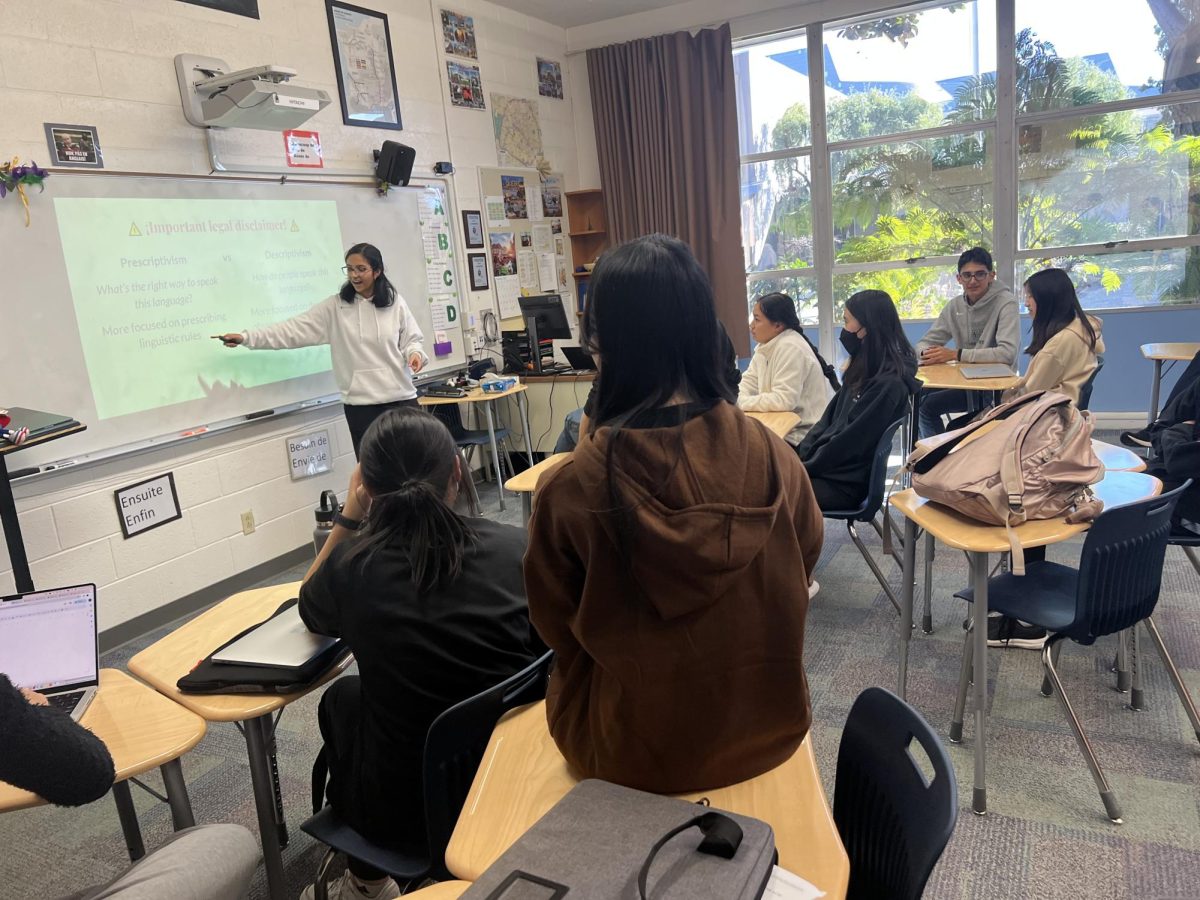
![LALC Vice President of External Affairs Raeanne Li (11) explains the International Phonetic Alphabet to attendees. "We decided to have more fun topics this year instead of just talking about the same things every year so our older members can also [enjoy],” Raeanne said.](https://harkeraquila.com/wp-content/uploads/2025/10/DSC_4627-1200x795.jpg)

